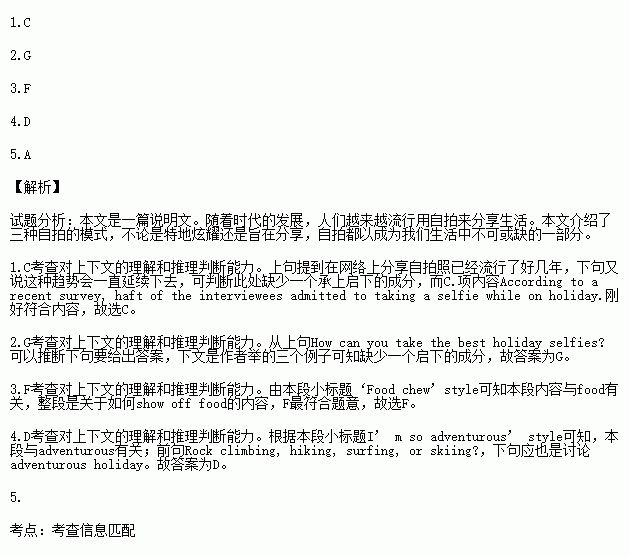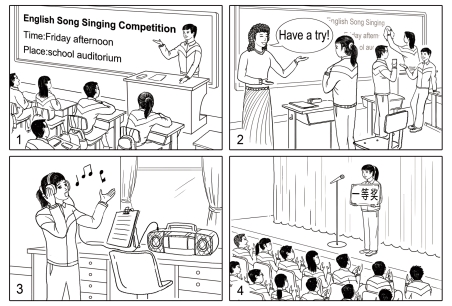题目内容
You can take a selfie with a hand - held digital camera or mobile phone and later share it on the Internet. So selfies have been especially popular over the years. 1. Love them or hate them, selfies show no sign of stopping.
After all, the selfie is the most important way to show off on holiday. Everyone has his own way to take the holiday selfies. How can you take the best holiday selfies? 2.
◆‘Food chew’style
Want to let everyone know how exciting your holiday food choices are? 3. You can also cut off a piece to show off what’s inside. But don’t have food hanging out of your mouth. Remember, food always looks best before being eaten.
◆‘I’ m so adventurous’ style
Rock climbing, hiking, surfing, or skiing? 4. Just let the natural settings make people go “wow”. One commonly used gesture is spreading out an arm to show how thrilled you are. But remember that no one likes a sweaty selfie.
◆‘I am cultured tourist’ style
5. You can also try an optical illusion(视错觉)by making it look like you’re holding up the leaning tower of Pisa, touching the top of the Eiffel Tower, or picking the Sphinx’s nose.
A. Just taking a selfie against a famous cultural site makes you look great.
B. Some people have no idea where to travel.
C. According to a recent survey, haft of the interviewees admitted to taking a selfie while on holiday.
D. These adventurous holiday moments are great for a selfie.
E. Different cultures have different characteristics of food.
F. Hold up some food on your fork or chopsticks.
G. Here are some useful posing tips for you.


